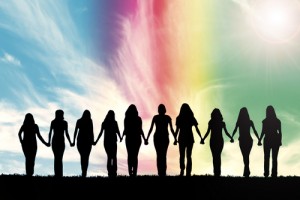 All over the world, even in its most developed nations, the LGBT community is one of the most discriminated-against populations. LGBT youth – lesbian, gay, bisexual, or transgender – are more likely than the general population to abuse drugs or alcohol. Even when treatment is offered, they tend to avoid it, perhaps out of fear of being treated poorly as an addict in similar fashion to the way they are in their daily lives as a member of the LGBT community.
All over the world, even in its most developed nations, the LGBT community is one of the most discriminated-against populations. LGBT youth – lesbian, gay, bisexual, or transgender – are more likely than the general population to abuse drugs or alcohol. Even when treatment is offered, they tend to avoid it, perhaps out of fear of being treated poorly as an addict in similar fashion to the way they are in their daily lives as a member of the LGBT community.
LGBT and Addiction Treatment
Traditional treatment programs place a high emphasis on the privacy, safety, and happiness of their clients; no discrimination whatsoever. Staff take proactive measures to maintain a friendly environment, but that alone can’t make every patient feel comfortable. When patients are uncomfortable…there’s just no way they can make progress. Some patients need extra help feeling comfortable. Fortunately, there are several specialized forms of treatment for LGBT youth that work very well.
Psychological Outpatient Rreatment and LGBT Addiction Support Groups
Most adolescents, even the LGBTs, have an easier time opening up about personal issues when no one besides their therapist is around. The counselor won’t judge them, ridicule them, or harass them. That’s the benefit of private addiction counseling; you have a safe, secure, private conversation about your deep down feelings and innermost thoughts in a therapeutic way.
Still, there are considerable advantages to group therapy settings as well. Talking with peers who understand your territory is a great way to expand a young person’s mind. Even if a teen is struggling with one of the most common problems known to man–a breakup, a failed class, etc–they can easily get caught up in the unique details of their situation and feel like they’re not completely alone.
LGBT Residential Addiction Treatment Facilities
Certain inpatient treatment facilities are beginning to offer LGBT-specific treatment regimens by separating their clients into different groups according to gender / assumed gender. The goal is to make everyone feel comfortable, not just the majority. Thus far, only a handful of treatment centers offer these services. Your best bet, of course, is to look in cities with large LGBT populations.
If you can’t find any–that’s okay. With so many LGBT issues, controversies, and social advancements in recent years, there are lots of lik-minded LGBT-focused groups and organizations out there–not just politico-charged, but purely social, too. Most major cities have several, as well as most high schools and colleges, and for those that don’t have access–you can always go online and find endless support. Some young people simply wish to retain their anonymity, which is why those forums and chat rooms are so great. You can even attend AA online.
LGBT Addiction Treatment Barriers
Fear of ridicule, financial difficulties, perceived stigma, troubled family relationships are just a few of the obstacles that LGBT youth face today. They’re not alone–not even close–but are simply at a much higher risk of developing mood disorders, especially depression–perhaps the biggest catalyst for drug abuse. Another, equally significant factor is that they have a much harder time establishing support networks before or after treatment.
The discrimination that faces LGBT youth isn’t limited to the outside world; for millions, the discrimination is felt at home, too. While a supportive family unit is endlessly helpful, it’s not the only support that’s out there. Sponsors, group therapy, private counseling sessions can do just as good of a job helping to keep adolescents on track. If money is the problem–the specialists can help with that as well.
For more information on treatment programs sensitive to the LGBT community and its needs, contact our specialists here at Sustain Recovery Services.



